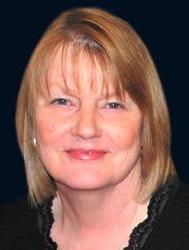Patty Craig: A Slice of Time
One year after the Covid-19 pandemic began, we can see many ways our world has changed. For most of 2020, we were stressed, healthy-living habits (such as exercise, etc.) took a back seat, and financial concerns for ourselves, family or friends were common. Feeling more hopeful recently, I’ve been reading articles which included advice regarding emotional, physical and financial health. Some of the information is listed below.
Emotional Health
(From Coping with a Disaster or Traumatic Event, “Taking Care of Your Emotional Health,” cdc.gov)
-Take care of your body: Try to eat healthy well-balanced meals, exercise regularly, and get plenty of sleep. Avoid alcohol, tobacco, and other drugs.
-Connect with others: Share your concerns and how you are feeling with a friend or family member. Maintain healthy relationships, and build a strong support system.
-Take breaks: Make time to unwind and remind yourself that strong feelings will fade. Try taking in deep breaths. Try to do activities you usually enjoy.
-Seek help when needed: If distress impacts activities of your daily life for several days or weeks, talk to a clergy member, counselor, or doctor, or contact the SAMHSA helpline at 1-800-985-5990.
Physical Health
(From Better Homes & Gardens, April 2021, pp.135-136, 138)
-People who eat diets rich in vitamins C and E were 38% less likely to develop Parkinson’s disease. Good foods with vitamins and minerals are necessary for our health.
-To lose weight, most people need to burn about 3,000 calories a week through exercise (roughly 40 minutes a day).
-Indoor plants convert CO2 to oxygen. They may improve air quality.
-Even a few minutes of fresh air can improve indoor air quality. Opening a window increases airflow, moving any pollution out. On high ozone days though, keep windows closed. (Check airnow.gov to see current levels in your area.)
-Sleep deprivation can negatively affect immunity (Kentucky Living, April 2021, p. 56).
Financial Health
-New data from GOBankingRates showed that 69% of Americans have less than $1,000 in savings (https://www.gobankingrates.com/saving-money/savings-advice/americans-hav...). In our world, saving money is difficult.
-Dave Ramsey recommended, while paying down debt, a beginner emergency fund of $1,000. After debts are paid – except for your home, Ramsey recommended one’s emergency fund be increased to three to six months of expenses (Daily News, Bowling Green, Kentucky, 7A, March 31, 2021).
- The Consumer Financial Protection Bureau recommends a debt-to-income ratio of 36% or less for homeowners and 15-20% or less for renters. Carrying higher levels of debt have a potential financial disaster (https://www.thebalance.com/do-you-have-too-much-debt-960820). This provides a goal.
- If you want to improve your credit score, the CFPB suggested taking the following steps—pay all your bills early or on time, keep credit balances low, fact check your credit reports and dispute any errors you find, and avoid opening credit accounts you don’t need. Never carry a credit balance for no reason (https://www.forbes.com/advisor/credit-cards/is-carrying-a-balance-always...).
Many people are still coping with issues that were caused or intensified by the pandemic. The pandemic and the associated restrictions created stress, particularly in the emotional, physical and financial health areas. Although the healing phase might take time, I’m hopeful that we can find ways to improve our lives in each of these areas.



























